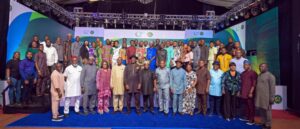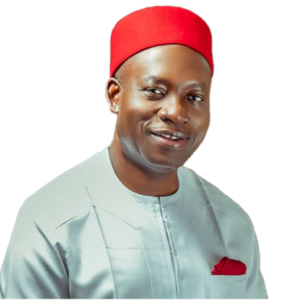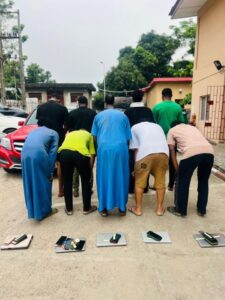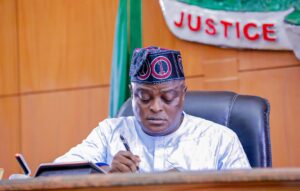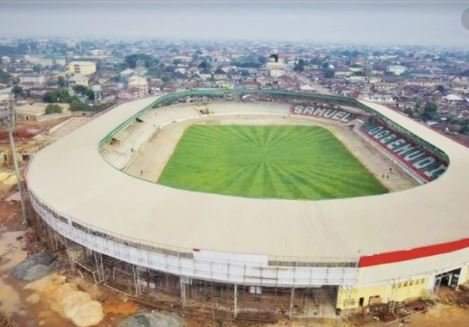
Government has no business running sports. It shouldn’t be involved in funding sports, except the amateur cadres at big tournaments, such as the Olympic Games, Commonwealth Games, African Games and qualifiers, where the country’s flag and anthem are sung. Government should just provide the enabling environment for sports to thrive. The templates should be backed by laws from the National Assembly or/and State Assemblies, such that no new government jettisons laudable projects.
Indeed, Edo State Governor Godwin Obaseki’s resolve to make sports a new economy underscores the revolutionary things that have trailed his four-year stay in governance. The governor’s dream is in tandem with what operates in saner and civilised climes. Obaseki’s new economy for Edo State isn’t just a dream, but one that has several examples in developed economies. Let me illustrate with just football in Spain, which is a developing economy like ours.
According to analysis from the professional services company, Sports Business Group, Spanish clubs spent £1.24 billion breaking the 1 billion-Euros mark for the first time, and more than doubling their expenditure from just two years ago. But there were also summer spending records set in Italy (£1.06 billion), Germany (£670 million) and France (£605 million).
Premier League clubs still led the way, though, with £1.41billion, although the net spent was only £575 million, the lowest since 2015. That net-spent figure also fell by £50 million since the league shut its transfer window on August 8, more than three weeks earlier than many of its European peers. Guess what, the English teams, having learned from their folly, are moving to revert to the old order in the transfer market by November, having seen what they lost as revenue to the early closure of the transfer market on August 8.
The biggest fillip that the national sports festival would have in its over 20 years history is that the 20th edition would be held in a seemingly new stadium with state-of-the-art facilities. Ogbemudia Stadium’s renovation signposts the rebirth of dead sporting activities in the country, such as the Ogbe Hard Court, which laid the foundation for the emergence of great tennis patriots, such as Nduka Odizor, Veronica Oyibokia, Nosa Imafidon, Nosa Amadin et al. Ogbe Hard Court opened a new vista in sports marketing in the country as the competition was bankrolled by companies, not wholly government. The tournament was rated in the tennis circuit and attracted such eminent stars as Loyo Moyo. Companies such as Bendel Lottery, Guinness and others, provided financial support, with the tournament having a beauty pageant, where a bevy of Nigerian girls from across the country participated. Nigerians used the Ogbe Hard Court platform to showcase our arts and culture, which drew the awe of foreigners, who splashed cash on some of these products, especially tie and dye clothing and artefacts.
It is government’s primary concern to build facilities for citizens to recreate. Sports is another way by which government can make its citizens healthy. Sports creates a massive platform for employment. The youth, who form the majority of the populace, can, with the right sporting facilities, dissipate energies in sports, instead of being involved in societal vices.
Therefore, when a visionary government seizes the opportunity to develop sports by rebuilding existing structures which were abandoned to rot, there is the urgent need to remind such a government not to allow the billions of naira sunk into such laudable facilities rot again. This writer was pleased to hear that Edo State government would legislate marketing windows available at the renovated Samuel Osaigbovo Ogbemudia Stadium for posterity’s sake. It was also cheery news to hear that the government wouldn’t immediately takeover ownership of the facilities. Rather, it would allow the stadium’s builders to teach knowledgeable Nigerians the basics of each facility and its maintenance brochures.
The beauty about effecting changes is that it is infectious. The renovation works at the Ogbemudia stadium has forced those who live around the place to renovate their building – many have painted the buildings to be in sync with what it happening. Those who have business concerns relevant to needs of athletes have upgraded, knowing the volume of business ahead of them.
Hitherto, the entrance into the stadium witnessed the conversion of the car park into practice grounds for basketball players and handball players, depending on the much busier team. That setting has been replaced with a befitting ring road construction. A second entrance has been introduced with a police post hidden just as you drive into the stadium. The original gate is there, except that the underneath of the stadium, which housed association offices, would now serve as merchandising platforms to leverage on wares emboldened by items relevant to Bendel Insurance and Edo Queens, both football teams owned by the government. Interestingly, the government plans to institute management boards for both clubs which would run as a business, whose budget would come from the House of Assembly after a budget defence. The essence is to nip in the bud sharp practices and make the management board accountable and prudent.
The main gate is ajar, but construction works going on suggest it would be more inviting when it is fully completed. It is, however, a departure from the past. Sports-loving fans are confronted with a beautiful building which served as the gymnasium hall but is being modernised to host a lot more sporting events.
But what arrests anyone who is conversant with the premises are the four lawn tennis courts, which reminded one of the golden era of Ogbe Hard Courts. The biggest innovation for lawn tennis is the presence of a centre court, essentially to host the men and women finals of the Ogbe Hard Courts, reminiscent of what we see at Wimbledon in England and other top Grand Slam events.. The centre court has its own fans’ setting which would be shared by gymnastics and weightlifting enthusiasts. Not forgetting the construction of another entrance, which would ease movement out of the premises in record time.
The road which separates the lawn tennis courts and the main-bowl of the stadium has been modernised with entrances meant for distinguished invitees. The three squash courts are a rarity here. Three matches can be played at the same time. Two of them can hold in one fibre glass hall. The stadium can host any international squash competition. This partially addresses the issue of what becomes of the facility after the Edo 2020 National Sports Festival.
Ogbemudia Stadium’s renovation didn’t affect its old structure, a great credit to the government. Rather, it expanded, with the complex now all covered. Fans would watch games without being beaten by rain.
My fear, however, are the lovely glass fittings which could be shattered in one volatile game, raising the poser of how culprits would be caught. My fears were doused with the presence of the Video Assistant Referee (VAR) device fitted in the stadium, with a CCTV network that is five kilometre radius. From the CCTV, we could watch what was going on at the Benin City airport, including how planes landed. Picking irate fans from anywhere in the stadium was as easy as sucking oranges. The standby generators of high voltage are stationed to power everything in the stadium. Those who would be at the opening ceremony on March 22 would be awed at the lighting systems in the premises.
Since the 20th National Sports Festival heralds the new Ogbemudia Stadium, this writer is excited that the government thought it appropriate to build another warm-up swimming pool which would aid learners. It would also take the pressure off the Olympic size pool, just as it would serve as a basis of training Nigerians in swimming and diving. Indeed, any country which wants to win any multi-sports competition such as the Olympics, Commonwealth Games, Africa Games etc, must have very good swimmers, meaning she must have a healthy swimming tradition back home.
Two world class swimming pools at Ogbemudia Stadium takes the pressure off privately-owned swimming pools and eliminates the talk that swimming isn’t meant for the hewers of wood in the society. The government could quickly construct diving pools in the place. The North Africans and the South Africans have dominated the Africa Games because of the rich swimming tradition. And one of the ways of keeping the sporting facilities busy is to organise programmes to discover, train and expose budding talents to swimming. It is only when we have the swimmers, for instance, that we can participate in competitions.
Edo State Deputy Governor insisted that: “What we have done in Edo State with the total refurbishment of the Samuel Ogbemudia Stadium and other sports facilities is to create the enabling environment that will allow private partnership in sports business. Sports business is huge.
“There will be all sorts of merchandising businesses around these facilities. Sportswear shops, restaurants and other businesses will be opened.”
For those who keep saying ‘’See Paris and die,’’ this writer’s response would also be ‘’ See Samuel Ogebmudia Stadium, Benin City, and die.’’
What a befitting way to remember the late Samuel Osaigbovo Ogbemudia.
By Ade Ojeikere






